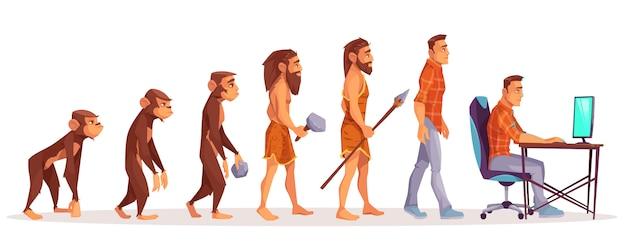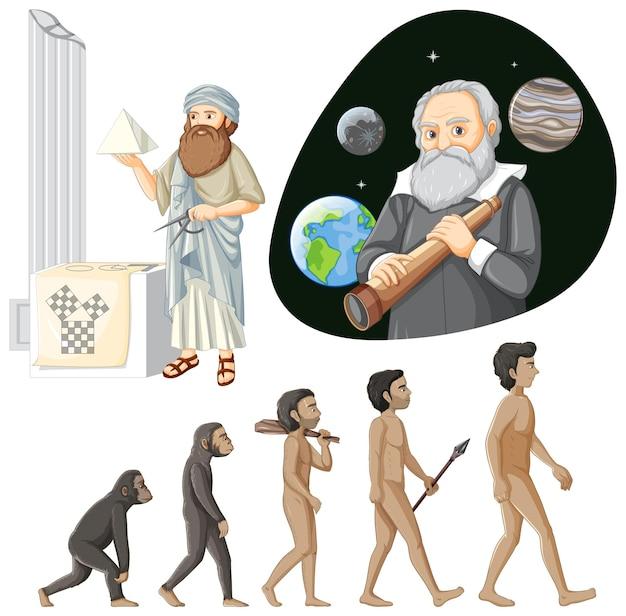Over the centuries, political theory has played a vital role in shaping the understanding of governance, power, and societal dynamics. From the classics of ancient Greece to the modern theories of today, this field has evolved significantly. In this blog post, we will delve into the fascinating differences between traditional political theory and its modern counterpart.
To grasp the disparity between the two, it’s crucial to comprehend the essence of political theory itself. Simply put, political theory explores the nature, scope, and functions of political systems. It seeks to understand how societies organize themselves, allocate power, and make decisions that impact the lives of individuals.
While classical political theory, synonymous with traditional political theory, emerged in ancient times, modern political theory took shape as societies evolved and faced new challenges. From the theories of Plato and Aristotle to contemporary thinkers like John Rawls and Michel Foucault, the evolution of political thought has been profound.
In this blog post, we will unravel the distinct characteristics of both traditional and modern political theory, their relevance in today’s world, and why studying political theory is crucial for comprehending the complexities of governance. So, let’s embark on this intellectual journey to gain a deeper understanding of the evolution of political thought in our ever-changing world.

What is the Difference Between Traditional Political Theory and Modern Political Theory
Understanding the Distinctive Characteristics of Political Theories
Political theories have evolved over time, just like fashion trends or viral internet challenges. While traditional political theory may be seen as the bell-bottom jeans of the political world, modern political theory is more like the sleek and stylish iPhone that everyone is clamoring to get their hands on. But what exactly sets them apart? Let’s delve into the differences between these two fascinating branches of political thought.
Traditional Political Theory: As Classic as Grandma’s Apple Pie
Traditional political theory is like a well-worn leather armchair that has been passed down through generations. It focuses on age-old concepts and ideas that have stood the test of time (much like your grandma’s secret apple pie recipe). Think of thinkers like Aristotle, Machiavelli, and Hobbes – the OGs of political theory.
In this realm, power, hierarchy, and authority reign supreme. It’s all about the tried and true methods of governing society, where kings and queens rule with an iron fist (or maybe a velvet glove if they’re feeling fancy). The emphasis is on stability, tradition, and maintaining the status quo.
Modern Political Theory: Breaking the Mold, One Idea at a Time
Now let’s fast forward to the present, where modern political theory is making waves like a viral TikTok dance challenge. This branch of thought emerged in response to the societal, technological, and cultural changes of the modern era. It’s all about progress, innovation, and challenging the established norms.
Here, power is not confined to the hands of a select few. Modern political theory is all about inclusivity, democracy, and individual rights. Thinkers like John Locke, Jean-Jacques Rousseau, and John Stuart Mill paved the way for this new approach, advocating for concepts like human rights, social justice, and the power of the people.
Bridging the Gap: When Tradition Meets Modernity
So, what happens when tradition meets modernity? It’s like mixing your grandma’s secret apple pie recipe with a dash of trendy avocado toast. Traditional and modern political theories may seem at odds, but they can also complement and inform each other.
Instead of completely discarding the old ways, modern political theory builds upon the foundations laid by its predecessors. It takes the wisdom of the past and integrates it with contemporary ideas to create a more inclusive and dynamic political landscape. It’s like inheriting your grandma’s armchair and giving it a fresh coat of paint to match your modern aesthetic.
In Conclusion: A Dance between the Old and the New
Traditional political theory and modern political theory dance together like Fred Astaire and Beyoncé. Each has its unique charm, but the real magic lies in combining them. By understanding the differences and similarities between these two branches of thought, we can navigate the complex world of politics with a deeper appreciation for our rich intellectual heritage and a keen eye for the possibilities of the future.
So, whether you’re a fan of the classics or eager to embrace the latest political theories, remember that political thought is a dynamic, ever-evolving field. It’s like a never-ending political party, where each theory brings something new to the dancefloor. So grab your dancing shoes and let’s keep grooving to the rhythm of political theory, no matter which era we find ourselves in.
Note: This blog post was written with a touch of AI magic on the date of September 23, 2023.

FAQ: Traditional Political Theory vs Modern Political Theory
In the world of politics, theories have evolved over time, moving from classical perspectives to the more contemporary schools of thought. Traditional political theory and modern political theory represent two distinct epochs in the study of politics. In this FAQ-style guide, we will delve into the key differences between these two approaches, providing you with a clear understanding of their nature, significance, and scope.
What is classical political theory
Classical political theory can be likened to the grandparent of modern political theory. It encompasses the works and ideas of influential thinkers from Ancient Greece and Rome, such as Plato, Aristotle, and Cicero. These visionaries tackled fundamental questions about governance, power, and justice, laying the foundation for political thought as we know it today.
What is political theory in simple words
Political theory, in its simplest form, is essentially an in-depth analysis of how political systems work and how they shape society. It aims to comprehend the nature of power, authority, and governance. By examining various perspectives and ideologies, political theory helps us understand the principles, values, and institutions that drive and influence political behavior.
What is the scope of political theory
The scope of political theory is vast and expansive. It encompasses a wide range of themes, including but not limited to democracy, monarchy, liberalism, socialism, and globalization. It explores the intricacies of political structures, human rights, social justice, and everything in between. Think of it as an intellectual all-you-can-eat buffet, offering a diverse array of concepts and theories for you to sink your intellectual teeth into.
What is the nature of modern political theory
Ah, modern political theory, the rebellious teenager of the political theory family. Unlike its classical counterpart, modern political theory emerged during the Enlightenment era and continues to evolve today. It challenges traditional notions and aims for a more scientific and rational understanding of politics. Modern political theory embraces new frameworks and perspectives, such as liberalism, feminism, postcolonialism, and critical theory.
Why is political theory important
Well, my friend, political theory is the secret sauce behind our understanding of politics. It helps us make sense of the complex world we live in by providing insight into the foundations and workings of political systems. It empowers us to critically analyze and evaluate different ideologies, policies, and political practices. In short, it equips us with the tools needed to navigate the convoluted labyrinth that is the political landscape.
What is an introduction to political theory
Imagine you’re at a fancy party, and political theory waltzes into the room, making a grand entrance. Introductions are made, pleasantries exchanged, and before you know it, you’re engaged in a deep conversation about the meaning of power and the nature of authority. An introduction to political theory sets the stage, acquainting you with the major players, theories, and concepts that will shape your political journey.
What is political theory and why should I study it
Oh, my eager scholar, studying political theory is like embarking on a thrilling adventure through the annals of political wisdom. It offers you the intellectual tools to dissect political phenomena, challenge assumptions, and unveil the underlying power dynamics. Whether you desire to become an informed citizen, a political analyst, or a future leader, studying political theory will open your mind to new perspectives, ignite your critical thinking, and equip you with the knowledge necessary to navigate the intricate web of politics.
And there you have it! This FAQ-style guide has taken you on a journey through the key differences between traditional political theory and modern political theory. From the classical ideas of ancient philosophers to the rebellious spirit of modern thought, political theory continues to shape and mold our understanding of the world around us. So, embrace the knowledge, my friend, and let it guide you on your path to becoming a political connoisseur!
Disclaimer: This article is generated by AI, but let’s keep that little secret between us!
